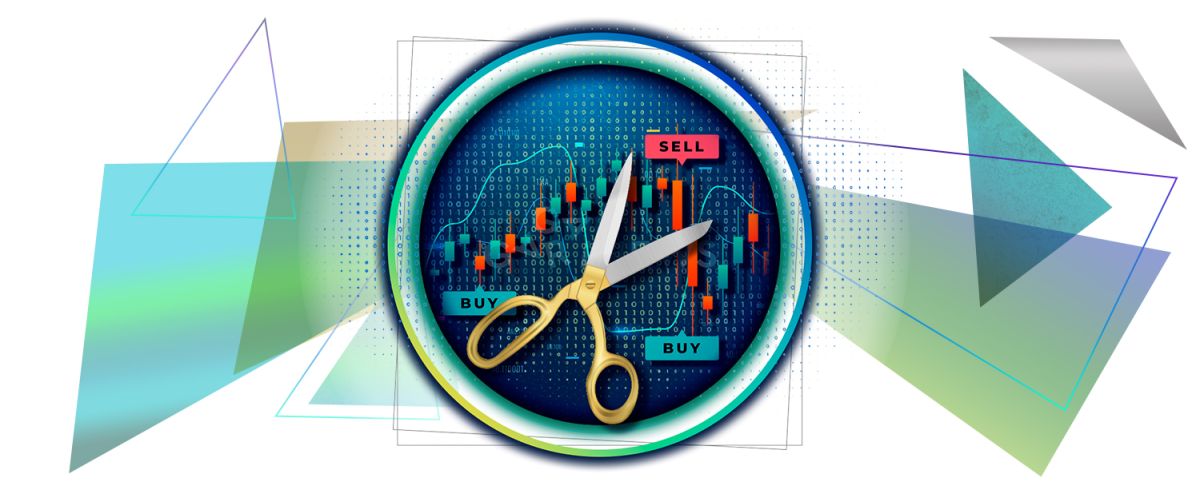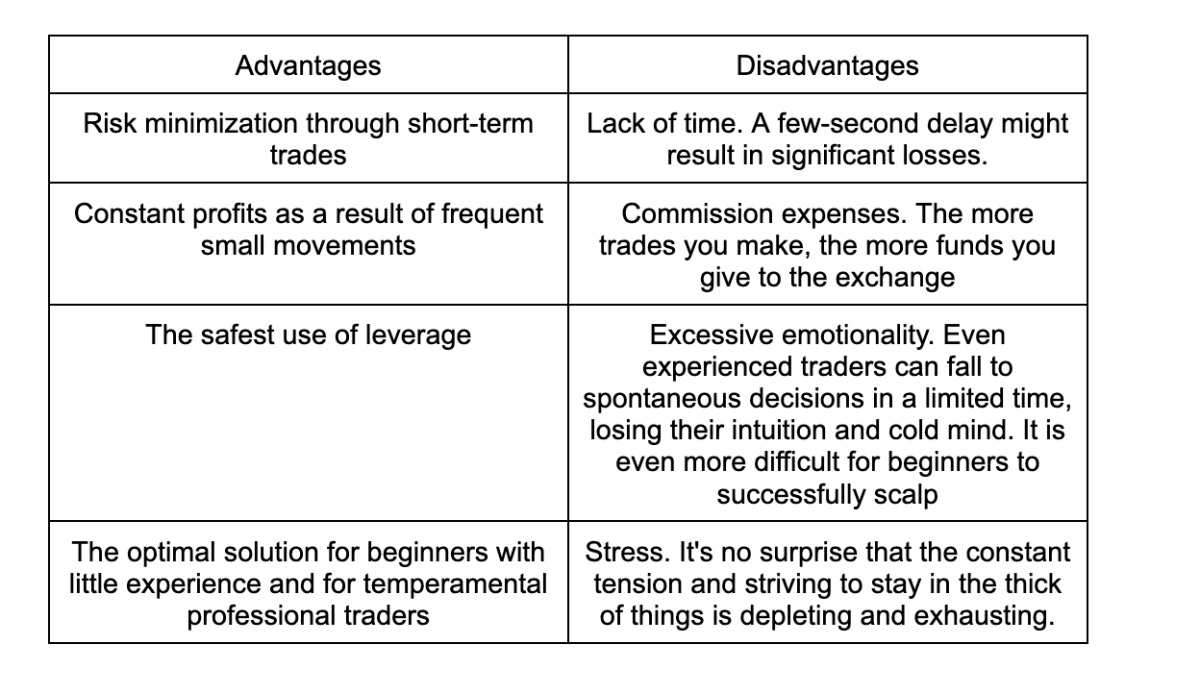What is scalping?

Scalping is an excellent example of a trading strategy that allows maximizing profit from the minimum of trading opportunities. However, scalpers should have a lightning-fast reaction and a cold mind!
Scalping (also known as scalp trading, pipsing, or high-frequency trading) is a type of intraday trading that enables you to make constant profits from small price fluctuations. Scalpers prioritize making numerous short-term trades that result in a small profit from each of them.
Some traders believe scalping is an effective trading strategy, while others consider it nothing more than gambling. Will it suit you? Let's try to figure it out!
Principles of scalping
Scalp traders do not hold positions for a long time. They tend to regularly "scalp" small amounts. This style of trading cannot be universal. It has distinctive features and scalpers should be aware of them.
A large number of trades
Profit directly depends on the number of trades. Each of them brings a minimum amount of profit, but their quantity allows the trader to get a good profit without extra effort.
This makes scalping extremely popular among newbies. It seems possible to make money without delving into the complexities of the market! However, to ensure success, it is still required to gain basic knowledge about cryptocurrencies and technical analysis.
High asset volatility
Slow-moving assets with a daily price change of 1-2% are not well suited for scalping. However, dynamic tokens with a daily price change of 7-10% can be a promising option.
Short time frames
Scalping is not just intraday trading. Scalp trades may be held for a few hours or minutes in a single trading session. The most desperate scalpers experiment even with time frames of less than one minute!
Using technical analysis
“The most important thing in scalping is speed, not knowledge.”
This belief is widespread yet false. Technical analysis indicators are true friends of every trader, regardless of the chosen strategy. Naturally, there is not enough time involved in scalping to do a detailed analysis of the market. However, using more sophisticated techniques like RSI, moving averages, Bollinger bands, and others will help to minimize the risks.
This belief is widespread yet false. Technical analysis indicators are true friends of every trader, regardless of the chosen strategy. Naturally, there is not enough time involved in scalping to do a detailed analysis of the market. However, using more sophisticated techniques like RSI, moving averages, Bollinger bands, and others will help to minimize the risks.
Fast reaction
Scalp trading is a strategy that calls for concentration, quick market analysis, forecasting, and decision-making. This kind of trading is not suitable for everyone. Do you want to do scalping? Get ready for stress and adrenaline rush.
Losses
Losses are the logical outcome of the lack of time and information in trading. But even with the same ratio of successful and failed trades, scalpers can make money if they choose a highly volatile asset and employ the proper strategies.
Types of scalpers
There are two types of scalp traders, depending on the trading strategy:
- Discretionary. They choose traditional pipsing, the most high-speed scalping. These traders make decisions based on the market situation at a particular point in time. They do not have clear requirements and trading principles, and the timeframe does not exceed five minutes. As a rule, discretionary traders do not analyze and calculate. Their main tool is intuition;
- Systematic. Such traders scalp in accordance with a tried-and-true plan with entry and exit points. They are familiar with technical analysis tools and use them for a quick analysis of the market situation. This makes systematic scalping less risky than pipsing.
Scalping and leverage
Scalpers often use leverage. Due to the minimum interest, this method of increasing the position volume is very profitable.
In most cases, the acceptable leverage for scalpers is 1:200-1:500. But often its values reach 1:1000-1:3000. It is crucial to consider slip protection when deciding on such risks.
Advantages and disadvantages of scalping
To scalp or not to scalp? The answer to this question depends only on the preferences of the trader. After evaluating the pros and cons of the strategy, you can decide whether it is appropriate for you.

Conclusions
Scalping is a prime example of how quantity can outperform quality. It will be an excellent starting point for newbies, and it will help experienced traders who use technical analysis tools to generate good profits.
Recommended

